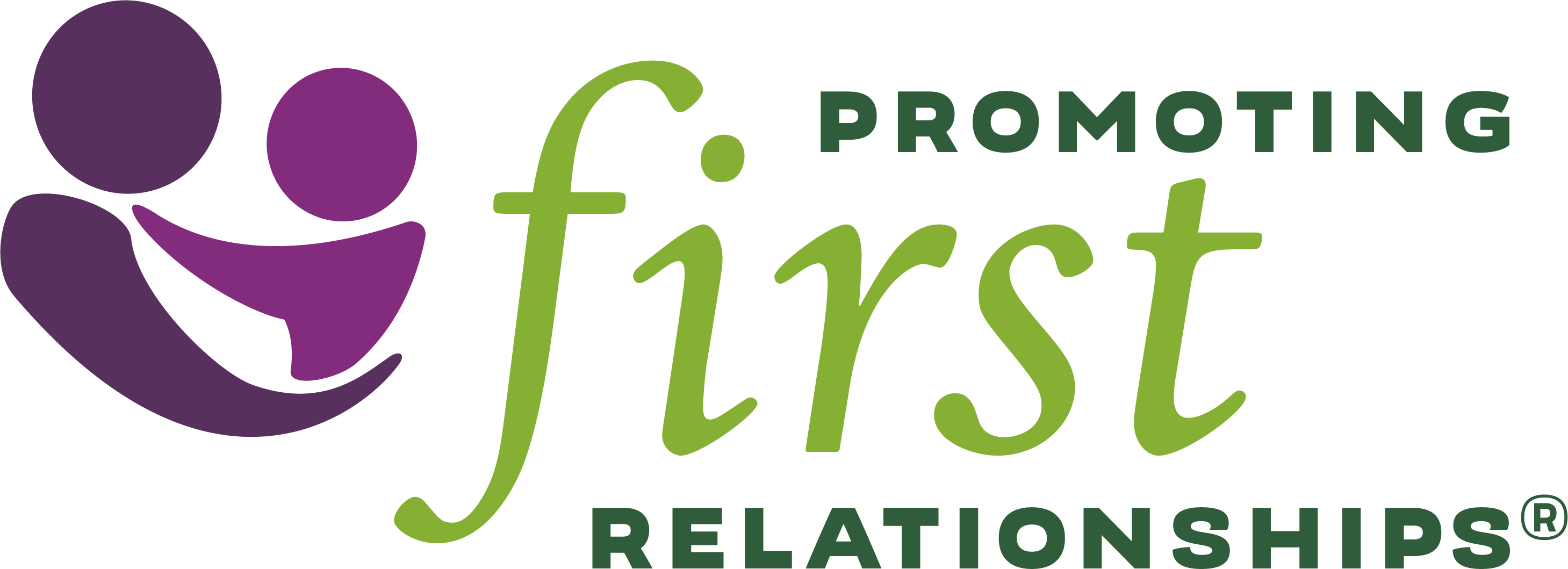Prevention Technology Transfer Center Network offered a free webinar,
“Exploring the Science of Connection Behind Promoting First Relationships”
WATCH VIDEO HERE
Webinar Description and Objectives:
Promoting First Relationships ® (PFR: Kelly et al., 2008) is a brief 10-week home visiting intervention designed for caregivers with infants or young children. PFR is a program that focuses on the quality of the caregiver-child relationship as a source of protection from toxic stress. Providers who learn to use PFR are trained to use strength-based strategies including positive feedback and reflective observation. Together these strategies help caregivers develop a deeper understanding of their child’s behavior which in turn increases their sensitivity to their child’s social and emotional needs. PFR uses video feedback to facilitate reflective observation and discussion. PFR has been evaluated in five randomized clinical trials: two trials in the child welfare system in Washington State; two trials within American Indian tribes; and one trial in a perinatal mental health setting. In this presentation, we will first describe the underlying conceptual model that leverages positive relationships as a source of resilience and then describe the PFR model of intervention. We will also show some videotaped examples of PFR in practice and conclude with a brief overview of the evidence base. There will be time for questions and answers upon the conclusion of the presentation.
By the end of the webinar participants will be able to:
- Identify key elements why focusing on children birth-five promotes overall well-being across the life course.
- Articulate two strategies that Promoting First Relationships® uses to elevate resilience and caregiver’s strengths to support the Caregiver-Child relationship.
- Describe PFR home-visiting program and have a basic understanding of relationship-based models of promotion and prevention.
Audience:
Prevention practitioners, allied health partners and community members working to prevent substance misuse in tribes, communities, and states in HHS Region 10 (Alaska, Idaho, Oregon, and Washington).
Presenter:
Monica Oxford, MSW, Ph.D. is a Research Professor in Child, Family, and Population Health Nursing at the University of Washington and the Executive Director of the Barnard Center for Infant Mental Health and Development. Her research focuses on early parenting and child developmental outcomes for families living in challenging environments. Dr. Oxford’s interest is in how context, parenting, and child characteristics combine to inform particular patterns of child outcomes and how intervention services promote both caregiver and child well-being. Dr. Oxford is also involved in training social service providers throughout Washington on infant mental health, strengths-based practice, and how providers can support caregiver-child dyadic interaction from an attachment-based perspective.
Dr. Oxford is the principal investigator of four NIH grants; the first three are randomized control trials aimed at examining the impact of Promoting First Relationships® (PFR: Kelly et al, 2008). Dr. Oxford is also co-principal investigator on four NIH-funded RCT testing the effectiveness of PFR in three additional populations (foster care, perinatal mental health setting, and American Indian rural setting).

